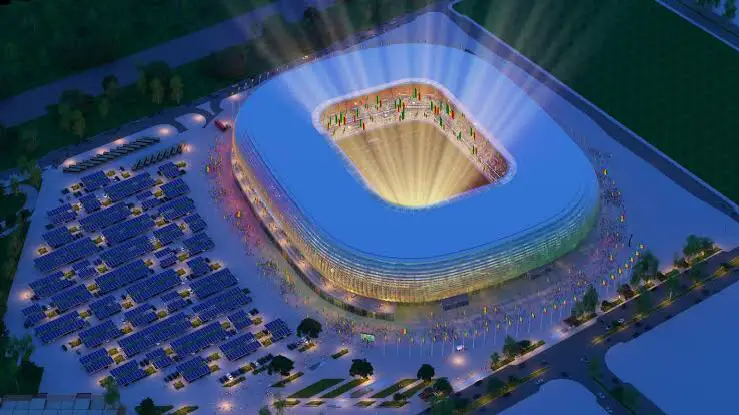The construction of a 2.3 MW ground-mounted solar park at Dakar’s Stade du Senegal has been completed by Citus Power, a Turkish developer, investor, EPC, and operator of renewable energy projects. In December 2021, the company began construction on the facility, which consists of 77 separate structures with 66 solar modules each.
Read also:Maroua and Guider solar plants in Cameroon to benefit from tax and customs exemptions
According to Eren Ulusoy, company development manager told PV magazine, the entire solar PV system installation took approximately two months. He added that since the stadium has two different and independent grid inputs, there are two separate electrical circuits in the stadium. To supply different sides of the stadium, he reckoned that the PV system had to be divided into two independent arrays, each with a power of 700 kW and 1 MW.
It is said that the solar park at Dakar’s Stade du Senegal is composed of 5,112 Trina Solar TSM-450DE17M (II) 450W modules and 21 Sungrow 110CX 110 kW inverters.
Ulusoy explained that the facility can function in both on-grid and off-grid mode, adding that there are also seven diesel generators, which function with solar PV systems when there is a power outage.
Solar park at Dakar’s Stade du Senegal production capacity
The solar array, according to Ulusoy, produces more energy than it requires, but it is not distributing the extra electricity to the system. He also claimed that the system is capable of supplying the extra energy to the grid, but it lacks approval from the local authorities.
To control the inverters and monitor load and generator outputs, he said that they employed two different control panels with DEIF ASC-4 devices. He added that even without an electrical connection between the south and north sides of the stadium, these DEIF controllers communicate with each other.
The Senegalese authorities commissioned the Stade du Senegal in February, with a seating capacity of 50,000.

